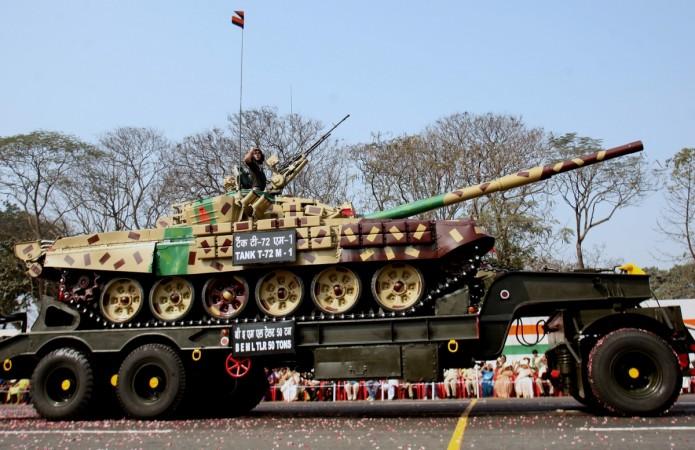
The Indian Army has moved more than 100 T-72 tanks to its disputed border with China in the mountainous region of Ladakh in Jammu & Kashmir, a strategy seen as beefing up India's presence in the area that overlooks the Tibet Autonomous Region.
This is the second time in history that India has deployed the T-72 tanks in the Himalayan region. The first was in 1962 during the Indo-China war, when the Indian Army airdropped five tanks in Ladakh, which has seen frequent incursions by the People's Liberation Army of China, reports The Diplomat.
The latest incursion by the PLA was on March 8 this year when Chinese troops entered almost six km near the Pangong lake area of Ladakh region, but the move was thwarted by the Indo-Tibetan Border Police (ITBP).
"The ITBP men showed banners and told the Chinese troops to go back. After a two-hour long verbal duel, the Chinese men went back. Such incidents keep on happening because of difference of perception on the LAC," the Hindustan Times quoted a senior security official as saying.
The Chinese PLA had made similar incursions into Indian territory in April 2015 and twice in 2014, July and December.
In view of acclimatisation challenges that arose when the T-72 tanks were first deployed in 1962, the Indian Army has taken a series of corrective steps this time.
"What we have done is that we have procured special additives and lubricants for high altitude terrain such as winter grade diesel and additives for the lubrication system, which prevents it from freezing in the tank," Colonel Vijay Dalal, commanding officer of a tank regiment, told The Hindu.
The build-up by India on its China border in the Ladakh region comes in the wake of reports that China has scaled up its presence, much to the discomfiture of India.
"We have noticed an increase in capability and force posture by the Chinese military in areas close to the border with India," U.S. Deputy Assistant Secretary of Defense for East Asia Abraham M. Denmark, told reporters during a press briefing in May this year. His comment came after the Pentagon submitted its annual report on "Military and Security Developments Involving the People's Republic of China," The Diplomat said.















